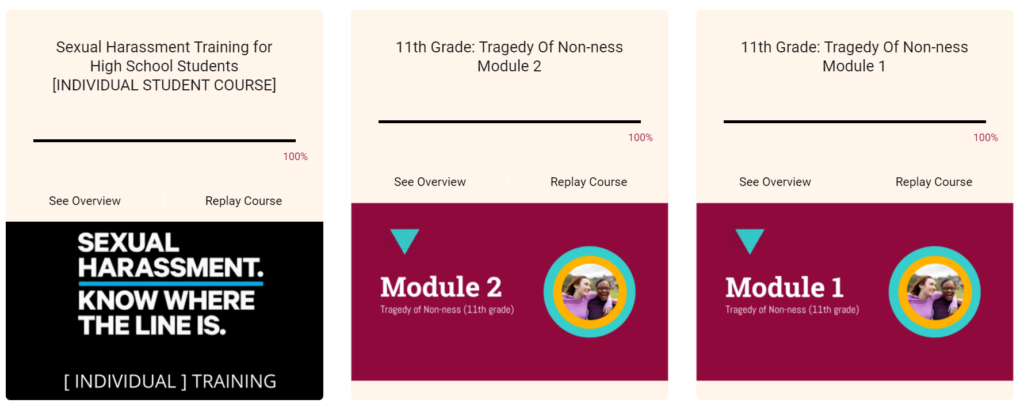Like most students, junior Weilin Sun has a love-hate relationship with Wednesdays in the school’s online learning schedule this year. He loves that he has a day to catch up on his homework and work ahead in classes. He hates that he has to arise at 8:35 to be ready for his 9 a.m. advisory period.
The half-hour advisory period started this year as a way to educate students on a wide range of issues, from microaggressions to issues of consent and many others. Students complete educational these units on their own and then move on with their Wednesdays.
Perhaps not surprisingly, the reception to the advisory period has been mixed.
“I don’t believe students have really been learning what the administration wants them to learn, as many people don’t take advisory seriously,” junior Amitav Rawat said. “The topics being taught are extremely sensitive topics and having them communicated through an online module is not the best way to teach it to students.”
For the school, the implementation of advisory had another purpose. By state mandate this year, teachers had to have live contact with students for five days a week.
According to assistant principal Kerry Mohnike, the advisory period itself is not required by the state, but some of the state’s initiatives don’t fit into any singular curriculum or class, so the advisory period fulfills those needs.
“The Haert curriculum and the Epoch Curriculum were specifically chosen to meet the needs of our students and to supplement the work being done to define the new Graduate Profile that is under review,” Mohnike said.
With the school now in remote learning, these modules also have to be self-explanatory and easily followed. Although the school has tried to pick the best curricula to follow during the advisory periods, many students said they feel disengaged during it, or think the whole system could be improved.
“One way to improve it [advisory] is maybe after a certain time, all the students will go into a Zoom meeting to discuss what they learned. That way, people can get new ideas and learn from different perspectives,” said junior Glenn Liang.
Other students have suggested a different way to utilize the advisory period by completely changing the content taught. Sophomore Siddharth Kamannavar thinks the school should hold a school-wide assembly during this time to discuss school events, as communication is lacking during remote learning, instead of just teaching mental health through a computer screen.
Despite negative feelings about advisory, some see it as a potential break from school.
“Advisory is a great way to break up the monotonous grind of school,” junior Daniel Jiang said. “Sometimes you just need a break from the pile of assignments you have.”
Although there are few actual consequences for not completing the assigned modules, administrators hope students complete the coursework. Students who do not complete it will receive a message asking if assistance is needed with connecting to the modules.
“The consequences [for not attending advisory] are simply attendance — and learning-related,” Mohnike said. “No one wants to punish anyone for not completing things that are good for them. It would be like punishing someone for not eating a healthy meal or taking a prescribed medication.”
Currently, advisory is planned to continue through the end of this year. If the school returns to full in-person mode in the months ahead, school leaders will iron out how it will fit into the school week.































